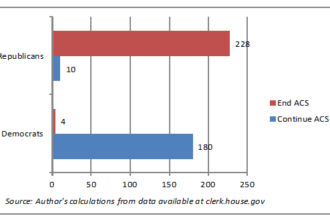 Solving data quality problems requires investment, and it’s an investment no business can avoid. Poor data quality can lead to compliance issues, legal challenges and increased effort from all sides.
Solving data quality problems requires investment, and it’s an investment no business can avoid. Poor data quality can lead to compliance issues, legal challenges and increased effort from all sides.
 Solving data quality problems requires investment, and it’s an investment no business can avoid. Poor data quality can lead to compliance issues, legal challenges and increased effort from all sides. Over time, as data (or the information derived from it) decays, inefficiency and inaccuracy becomes a serious issue that can hamper progress throughout the organisation. Customers also have higher expectations and feel more empowered to complain if they don’t feel their data is being handled correctly.
Solving data quality problems requires investment, and it’s an investment no business can avoid. Poor data quality can lead to compliance issues, legal challenges and increased effort from all sides. Over time, as data (or the information derived from it) decays, inefficiency and inaccuracy becomes a serious issue that can hamper progress throughout the organisation. Customers also have higher expectations and feel more empowered to complain if they don’t feel their data is being handled correctly.
According to a 2009 Gartner study, businesses estimated that they are losing an average of $8.2 million per year because of poor data quality. Five years on, we are storing, managing and relying on more data than ever before. It’s more important than ever to mitigate the risk of poor data quality by investing in solutions that work.
Fearing Investment
Thousands of businesses are now facing up to their responsibilities and investing in data quality software. They must also meet the costs associated with out of date data and its resolution. Often, businesses simply don’t understand the data they are working with, and this means costs can spiral out of control when data quality measures are brought in.
Faced with these expensive projects, many businesses delay data quality improvement initiatives, fearing that they are ‘all pain and no gain’. Horror stories about expensive and unmanageable data quality projects may dissuade the business from grasping the problem early on. Businesses don’t realise that effective data quality projects generate an impressive Return On Investment (ROI), and can massively improve efficiency and morale. This just needs to be measured in the right way.
Positive Outcomes
Data quality projects result in efficiency improvements and tangible cost savings across the business. From the sales department to the support team, the entire lifecycle is made simpler and easier to manage. The business is better able to report on its progress and use data from the past to shape its future direction.
There are two main reasons for these desirable outcomes:
- The business is able to be more productive, and is better equipped to make effective decisions because it has more accurate data to work from. This is evident in the sales and marketing departments, where knowing a customer’s name and address is one of the most important factors in communicating effectively
- It can continue to provide customers with the best possible service once they have made a purchase, keeping their data safeguarded and up to date. If a valued customer changes their name, moves house or switches jobs, ‘following’ those changes will inspire trust and reduce wasted time
Putting the positive outcomes into words is quite simple: we often cover the benefits of good data quality on our blog. Measuring the positive outcomes in terms of figures, or cost savings, may not be so obvious. It’s impossible to prove positive ROI unless you can track it and provide conclusive, hard evidence, and that’s the only way you can prove that data quality really does matter.
Even if employees feel that they are more productive at work, and customers feel that they have more confidence in your brand, there are no facts and figures to back them up. That is unless you actively track the impact of the change.
How to Track Effectiveness
To track economic impact, there are several valid approaches to measuring ROI in data quality projects.
The essential measurement is the benefit vs. the outlay, as shown in these examples:
- Benefits may include better response rates from marketing campaigns, which can be measured in a percentage
- The business can track how many mailings are returned as undelivered
- There will be a retention of customers who appreciate the maintenance of their data; this can be measured too
- Employees are able to work more effectively when records are kept up to date, generating an indirect saving by tightening up workflows and doing away with complex workarounds
- The business is also more likely to comply with regulatory compliance, resulting in fewer fines and penalties – a real and very measurable financial benefit
- When duplicate data is removed, matched and merged, the cost of storage can be reduced
- Access to that data can be made simpler and faster because records are more consistent
Challenges in Measuring ROI
While this sounds simple, in practice, it can be complex. Older systems can introduce a challenge when data is not compatible or easy to export and process. Different departments have different ideas about what data quality projects mean, and about the amount of effort they will be expected to invest. It can also be difficult to encourage buy-in across the organisation until ROI is demonstrated, and by then, the project may be almost complete.
Regardless, the business must be able to show that the data quality project was a success. This will ensure that the business can present justification for the costs of keeping data clean and duplicate free.
When a business has concerns about the cost of data quality projects, it is helpful to choose tools that require minimal training and an affordable upfront investment. It also helps if data is processed efficiently, ideally using integrated tools rather than an export/ import process that can introduce more data quality challenges.
Take-Aways
If you cannot trust the data that your business relies on, it becomes less and less useful, and it loses its value. What was once a critical business asset becomes a stale, unwieldy collection of data that may or may not support your objectives.
The key is to set out with measurable aims and to ensure progress is effectively tracked. Only then can the business know that its data is fit for purpose, and only then can it define the ROI of its data quality project.







